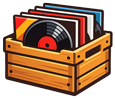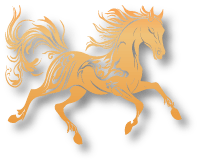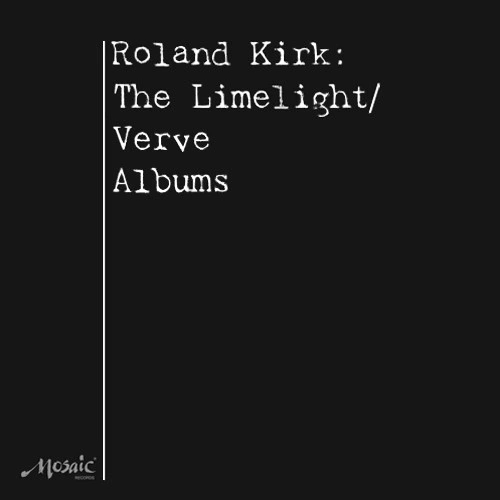Limited to 2500 copies! Individually Numbered!
180g Audiophile Vinyl! Pressed at QRP! Mastered from the Original Analog Tapes!
Born August 7, 1936 in Columbus, Ohio, Roland Kirk grew up to become one of the most all-encompassing and unique virtuosos in jazz
Born essentially blind (his eyes could distinguish light), he showed an early desire to try to make music from things such as the end of a water hose. His first real instrument, at age 9, was the trumpet, but his doctor felt that it put too much pressure on his eyes, so he switched to saxophone and clarinet. He was a natural musician and a fast learner who was playing professional gigs while still in high school.
He dreamt at age 16 that he was playing three instruments at once. In a local music store, he soon found two rare oddities: a manzello which is a Spanish variant of the soprano sax with a bent, flaired bell and a stritch, which was essentially a straight alto sax with a large bell at the end. He worked out his own false fingerings to be able to play three-part harmony on the three saxophones. At age 23, he made his first album for King Records in Cincinnati. That label was the home of James Brown and other great R & B acts and Kirk's album quickly became a rare collector's item. He progressed quickly and became well known in Chicago where he made his second album for Argo in 1960 at the behest of Ramsey Lewis. He ventured to New York in 1961 making an album for Prestige Records with organist Jack McDuff. The war between the pro-Kirk and anti-Kirk factions in the musical and critical communities was taking shape. Genius or gimmick-laden huckster? History fell on the side of genius.
In 1964, Mercury announced Limelight, a new subsidiary with incredibly elaborate packaging. Roland moved to the new label and recorded what could be called his first concept record. He left all the saxophones at home and recorded an entire album on a variety of flutes. "I Talk With The Spirits" added vibist Bobby Moses to his quartet with Miss C. J. Albert's wordless vocal on two tunes. The material was all geared to the flute but ranged from the lyrical to the funky. Roland's kick-off original, the irresistible "Serenade To A Cuckoo" became a radio hit. The whole album is a coherent and beautiful statement.
To see Kirk live was like having a safe seat at the core of a typhoon and witnessing a force of nature facilely draw upon the entire history of jazz with dazzling energy, humor and imagination. That was glimpsed on 1963's "Kirk In Copenhagen," but the intensity that was Kirk and his music was not properly captured until an all-star studio album "Rip, Rig And Panic," made at Rudy Van Gelder's studio. The rhythm section of Jaki Byard, Richard Davis and Elvin Jones was a dream team for Roland. These were men who could follow him anywhere in a heartbeat and who meshed musically on the highest plane. They were, quite simply, on his level. This studio album packed all the power and energy of Roland Kirk live, moving effortless from New Orleans to swing to bop to free form to musique concrete.
Kirk's final Limelight album was no less ambitious though it was a clear attempt to cross over into more popular radio formats. Kirk and arranger Garnett Brown add brass and percussion to the mix for "Slightly Latin" which also includes the Coleridge Perkinson choir on three tracks. Two pop tunes are covered, a smokin' "Walk On By" and the Beatles' "And I Love Her." The rest is densely textured originals on which Roland plays a fair amount of baritone sax with the grace and power he brings to any reed instrument.
Before committing to an exclusive contract with Atlantic Records in 1967, he made one album for Creed Taylor at Verve. This would be his third and final album at the Van Gelder studio. "Now Please Don't Cry, Beautiful Edith" is a celebrated quartet affair with Lonnie Liston Smith on piano, Ronnie Boykins on bass and the indefatigable Grady Tate on drums. The program is mostly originals, but with a wide variety of grooves and melodic material. Fittingly, it kicks off with a beautiful Ellingtonian original blues "Blue Rol" which is a rare feature for Roland on clarinet.
Roland's collaborations with producer Joel Dorn on Atlantic would soon take a more conceptual shape and a variety of settings and themes. These four mid-sixties gems capture Roland Kirk at the height of his powers with his identity fully formed in four wonderful contexts.
"Trust me when I tell you that Ryan K. Smith's remaster from the original tape opens the door and throws away the key! It's nothing short of miraculous, particularly the sound of the somewhat distance cymbals...Highly recommended!" -Michael Fremer, analogplanet.com, Music 10/10, Sound 9/10
Features:
Limited Edition - 2500 copies
Individually Numbered
4LP Box Set
180g Vinyl
Pressed at QRP
Mastered from the original analog tapes
Produced for release by Michael Cuscuna
Stereo
Musicians:
On "I Talk With The Spirits"
Roland Kirk, flute, alto flute, African wooden flute
Bobby Moses, vibes
Horace Parlan, piano, celeste
Michael Fleming, bass
Walter Perkins, drums
Miss C.J. Albert, vocals
On "Rip, Rig And Panic"
Roland Kirk, tenor sax, manzello, stritch, castenets, siren
Jaki Byard, piano
Richard Davis, bass
Elvin Jones, drums
On "Slightly Latin"
Roland Kirk, tenor sax, manzello, stritch, baritone sax, piccolo, flute, bagpipes, chanter, siren
Virgil Jones, trumpet
Martin Banks, fluegelhorn
Garnett Brown, trombone
Horace Parlan, piano, celeste, vibes
Eddie Mathias, bass
Sonny Brown, drums, Nagoya harp
Montego Joe, congas
Manuel Ramos, percussion, vocal choir
On "Now Please Don't You Cry, Beautiful Edith"
Roland Kirk, tenor sax, manzello, stritch, flute, clarinet
Lonnie Liston Smith, piano
Ronnie Boykins, bass
Grady Tate, drums
Selections:
LP 1 - I Talk With The Spirits:
Side A:
1. Serenade To A Cuckoo
2. We'll Be Together Again/People
3. A Quote From Clifford Brown
4. Trees
5. Fugue'n And Alludin'
Side B:
1. The Business Ain't Nothin' But The Blues
2. I Talk With The Spirits
3. Ruined Castles
4. Django
5. My Ship
LP 2 - Rip, Rig and Panic:
Side A:
1. No Tonic Pres
2. Once In A While
3. From Bechet, Byas And Fats
4. Mystical Dreams
Side B:
1. Rip, Rig And Panic
2. Black Diamond
3. Slippery, Hippery, Flippery
LP 3 - Slightly Latin:
Side A:
1. Walk On By
2. Raouf
3. It's All In The Game
4. Juarez
5. Shakey Money
Side B:
1. Nothing But The Truth
2. Safari
3. And I Love Her
4. Ebrauqs
LP 4 - Now Please Don't You Cry, Beautiful Edith:
Side A:
1. Blue Rol
2. Alfie
3. Why Don't They Know
4. Silverlization
Side B:
1. Fall Out
2. Now Please Don't You Cry, Beautiful Edith
3. Stompin' Grounds
4. It's A Grand Night For Swinging
180g Audiophile Vinyl! Pressed at QRP! Mastered from the Original Analog Tapes!
Born August 7, 1936 in Columbus, Ohio, Roland Kirk grew up to become one of the most all-encompassing and unique virtuosos in jazz
Born essentially blind (his eyes could distinguish light), he showed an early desire to try to make music from things such as the end of a water hose. His first real instrument, at age 9, was the trumpet, but his doctor felt that it put too much pressure on his eyes, so he switched to saxophone and clarinet. He was a natural musician and a fast learner who was playing professional gigs while still in high school.
He dreamt at age 16 that he was playing three instruments at once. In a local music store, he soon found two rare oddities: a manzello which is a Spanish variant of the soprano sax with a bent, flaired bell and a stritch, which was essentially a straight alto sax with a large bell at the end. He worked out his own false fingerings to be able to play three-part harmony on the three saxophones. At age 23, he made his first album for King Records in Cincinnati. That label was the home of James Brown and other great R & B acts and Kirk's album quickly became a rare collector's item. He progressed quickly and became well known in Chicago where he made his second album for Argo in 1960 at the behest of Ramsey Lewis. He ventured to New York in 1961 making an album for Prestige Records with organist Jack McDuff. The war between the pro-Kirk and anti-Kirk factions in the musical and critical communities was taking shape. Genius or gimmick-laden huckster? History fell on the side of genius.
In 1964, Mercury announced Limelight, a new subsidiary with incredibly elaborate packaging. Roland moved to the new label and recorded what could be called his first concept record. He left all the saxophones at home and recorded an entire album on a variety of flutes. "I Talk With The Spirits" added vibist Bobby Moses to his quartet with Miss C. J. Albert's wordless vocal on two tunes. The material was all geared to the flute but ranged from the lyrical to the funky. Roland's kick-off original, the irresistible "Serenade To A Cuckoo" became a radio hit. The whole album is a coherent and beautiful statement.
To see Kirk live was like having a safe seat at the core of a typhoon and witnessing a force of nature facilely draw upon the entire history of jazz with dazzling energy, humor and imagination. That was glimpsed on 1963's "Kirk In Copenhagen," but the intensity that was Kirk and his music was not properly captured until an all-star studio album "Rip, Rig And Panic," made at Rudy Van Gelder's studio. The rhythm section of Jaki Byard, Richard Davis and Elvin Jones was a dream team for Roland. These were men who could follow him anywhere in a heartbeat and who meshed musically on the highest plane. They were, quite simply, on his level. This studio album packed all the power and energy of Roland Kirk live, moving effortless from New Orleans to swing to bop to free form to musique concrete.
Kirk's final Limelight album was no less ambitious though it was a clear attempt to cross over into more popular radio formats. Kirk and arranger Garnett Brown add brass and percussion to the mix for "Slightly Latin" which also includes the Coleridge Perkinson choir on three tracks. Two pop tunes are covered, a smokin' "Walk On By" and the Beatles' "And I Love Her." The rest is densely textured originals on which Roland plays a fair amount of baritone sax with the grace and power he brings to any reed instrument.
Before committing to an exclusive contract with Atlantic Records in 1967, he made one album for Creed Taylor at Verve. This would be his third and final album at the Van Gelder studio. "Now Please Don't Cry, Beautiful Edith" is a celebrated quartet affair with Lonnie Liston Smith on piano, Ronnie Boykins on bass and the indefatigable Grady Tate on drums. The program is mostly originals, but with a wide variety of grooves and melodic material. Fittingly, it kicks off with a beautiful Ellingtonian original blues "Blue Rol" which is a rare feature for Roland on clarinet.
Roland's collaborations with producer Joel Dorn on Atlantic would soon take a more conceptual shape and a variety of settings and themes. These four mid-sixties gems capture Roland Kirk at the height of his powers with his identity fully formed in four wonderful contexts.
"Trust me when I tell you that Ryan K. Smith's remaster from the original tape opens the door and throws away the key! It's nothing short of miraculous, particularly the sound of the somewhat distance cymbals...Highly recommended!" -Michael Fremer, analogplanet.com, Music 10/10, Sound 9/10
Features:
Limited Edition - 2500 copies
Individually Numbered
4LP Box Set
180g Vinyl
Pressed at QRP
Mastered from the original analog tapes
Produced for release by Michael Cuscuna
Stereo
Musicians:
On "I Talk With The Spirits"
Roland Kirk, flute, alto flute, African wooden flute
Bobby Moses, vibes
Horace Parlan, piano, celeste
Michael Fleming, bass
Walter Perkins, drums
Miss C.J. Albert, vocals
On "Rip, Rig And Panic"
Roland Kirk, tenor sax, manzello, stritch, castenets, siren
Jaki Byard, piano
Richard Davis, bass
Elvin Jones, drums
On "Slightly Latin"
Roland Kirk, tenor sax, manzello, stritch, baritone sax, piccolo, flute, bagpipes, chanter, siren
Virgil Jones, trumpet
Martin Banks, fluegelhorn
Garnett Brown, trombone
Horace Parlan, piano, celeste, vibes
Eddie Mathias, bass
Sonny Brown, drums, Nagoya harp
Montego Joe, congas
Manuel Ramos, percussion, vocal choir
On "Now Please Don't You Cry, Beautiful Edith"
Roland Kirk, tenor sax, manzello, stritch, flute, clarinet
Lonnie Liston Smith, piano
Ronnie Boykins, bass
Grady Tate, drums
Selections:
LP 1 - I Talk With The Spirits:
Side A:
1. Serenade To A Cuckoo
2. We'll Be Together Again/People
3. A Quote From Clifford Brown
4. Trees
5. Fugue'n And Alludin'
Side B:
1. The Business Ain't Nothin' But The Blues
2. I Talk With The Spirits
3. Ruined Castles
4. Django
5. My Ship
LP 2 - Rip, Rig and Panic:
Side A:
1. No Tonic Pres
2. Once In A While
3. From Bechet, Byas And Fats
4. Mystical Dreams
Side B:
1. Rip, Rig And Panic
2. Black Diamond
3. Slippery, Hippery, Flippery
LP 3 - Slightly Latin:
Side A:
1. Walk On By
2. Raouf
3. It's All In The Game
4. Juarez
5. Shakey Money
Side B:
1. Nothing But The Truth
2. Safari
3. And I Love Her
4. Ebrauqs
LP 4 - Now Please Don't You Cry, Beautiful Edith:
Side A:
1. Blue Rol
2. Alfie
3. Why Don't They Know
4. Silverlization
Side B:
1. Fall Out
2. Now Please Don't You Cry, Beautiful Edith
3. Stompin' Grounds
4. It's A Grand Night For Swinging




 Turntable Accessories
Turntable Accessories Headphone Accessories
Headphone Accessories Cable Accessories
Cable Accessories Vinyl Accessories
Vinyl Accessories Compact Disc Accessories
Compact Disc Accessories







